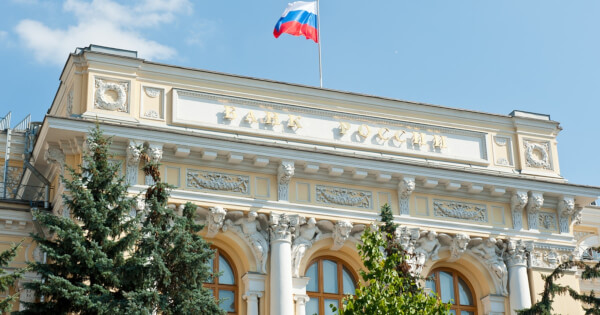Gazprombank suggests banks be given more time to adjust to digital
Terrill Dicki Feb 11, 2023 06:28
Gazprom, a Russian state-owned company, suggested allowing banks extra time to deploy the "digital ruble."

Gazprombank, which is an unit of the main Russian government-owned gas business, Gazprom, has openly recommended that banks be given extra time before the implementation of the digital currency. Because of international financial restrictions and rising geopolitical tensions, progress on the country's central bank digital currency (CBDC) initiative has picked up speed.
As was reported by local media on February 7th, Gazprombank, one of the 15 banks participating in the CBDC pilot, issued a public statement with a recommendation to proceed with caution regarding the interests of traditional banks. The statement read, "It is imperative that banks take measures to mitigate potential losses." As a result, it is of the utmost importance to be aware of the possible dangers that are connected with the transition to a digital ruble and to approach its implementation with extreme care, giving the monetary system the time to readjust.
Nevertheless, the statement acknowledges that the CBDC will contribute to more openness across the whole of the Russian economic and financial system.
The Russian division of McKinsey calculated that conventional banks might potentially suffer losses of around $3.5 billion (250 billion rubles) in the first five years as a result of the adoption of CBDC. During the same time period, the consulting company predicted that the stores would make an annual profit of $1.1 billion.
The planning stages of a CBDC were initiated in Russia around the year 2020. The completion of the transition to the digital rouble, which is presently undergoing testing for settlement with the banks, is anticipated for this year. The most recent update to the Bank of Russia's monetary policy indicates that the regulatory body would start the process of connecting all banks and credit institutions to the digital rouble network in the year 2024.
Additionally, the Central Bank of Russia has initiated the process of creating a cross-border settlement system that will make use of a CBDC. When Russia began a full-scale invasion of Ukraine at the end of February 2022, the nation was already facing rising financial and economic sanctions as a result of the intensification of the conflict between Russia and Ukraine.
Image source: Shutterstock
.jpg)